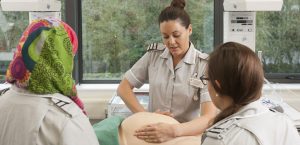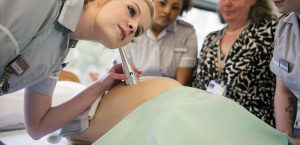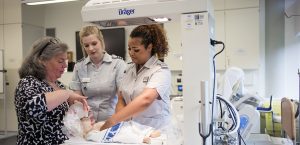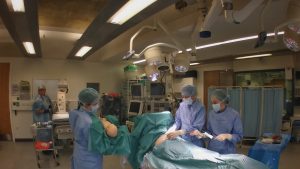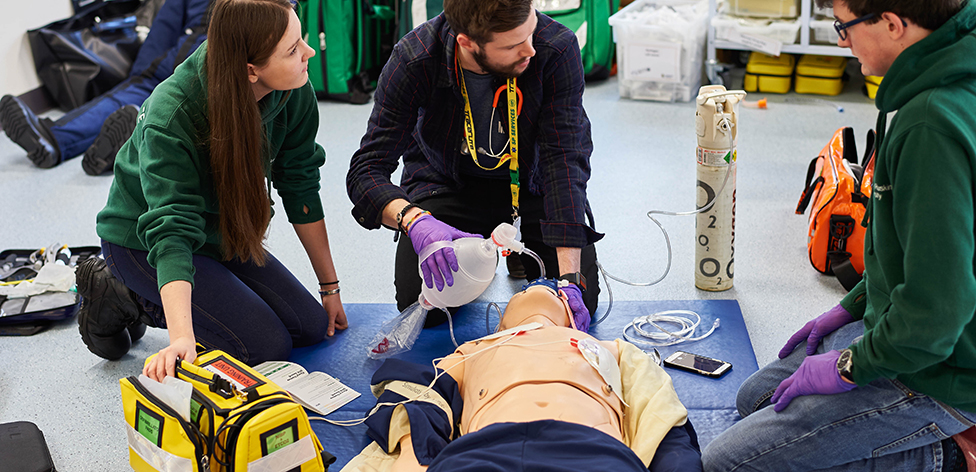Anglia Ruskin’s Faculty of Health, Education and Social Care is the largest provider of health, social care and education courses in the East of England, and provides students with hands-on experience with the latest equipment and treatments in modern health and social care.
Medicine facilities
ARU’s School of Medicine in Chelmsford opened in 2018. The £20 million building boasts state-of-the-art skills facilities, GP simulation rooms, an anatomy suite and a Harvard style lecture theatre.
Take a look around.
School of Medicine
Anatomy suite
A thorough knowledge of anatomy is essential for those who wish to work in medicine, surgery and pathology.
ARU’s medical students explore the structure and function of the human body in a state-of-the-art anatomy laboratory. Led by tutors and skilled technicians, students use dissection on Thiel embalmed cadavers – people who have donated their bodies to medical science. They are then able to apply what they’ve learnt in clinical settings. One of their medical students, Faye, has been blogging about her experiences in the anatomy suite.
ARU’s anatomy lab features a large dissection room with ceiling-mounted computer screens, embalming facilities, radiology software, an innovative virtual dissector, 3D printed models from CT scans, and ultrasound machines.
Multi-Functional SuperLabs
Anglia Ruskin have invested £3 million in our brand new SuperLab complex which offer a new method of performing practical sessions and experiments. With 83 student workstations and four lecturer workstations, the lecture and experiment become one. Four lecturers can broadcast simultaneously, demonstrations can be beamed direct to the student’s workstation and students have plenty of space to work on their own experiments. Using the latest scientific kits, students get to experience the dos and don’ts of a level two category laboratory and prepare for working life.
The SuperLab space also encompasses a physiological lab to run testing on fellow classmates and get excellent experience in a leading facility. As these labs facilitate Pharmaceutical Science, Medical Science, Medicine and other scientific based courses, students will get the chance to work alongside other disciplines and learn from award winning lecturers and professors.
Paramedic Science Facilities
The university’s purpose built paramedic skills labs in Cambridge and Chelmsford allows our students flexible spaces to practice their skills in a spacious environment that simulates real-life experiences. There are three dedicated spaces for our students with easy access to all of their specialised kit, mannequins, trolleys and simulation equipment.
There is also a self-contained flat for use by the paramedic students in Chelmsford. This studio flat has a fitted kitchen and bedroom area, separate bathroom with bath, toilet, sink, and shower. This is a teaching and practical space to practice skills and scenarios in places that they are likely to encounter on placement and in work.
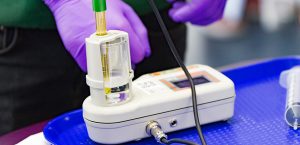 ramedic Student
ramedic Student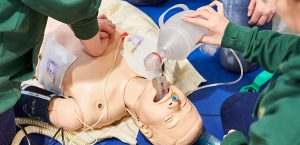
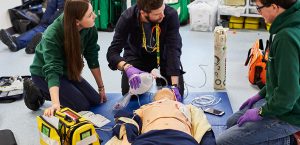
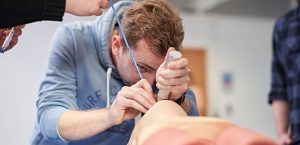
Nursing facilities
ARU’s Cambridge, Chelmsford and Peterborough campuses all offer purpose-built nursing skills labs. The labs simulate many aspects of a working hospital ward, and let you use sophisticated healthcare equipment.
They have general nursing wards on all three campuses, as well as dedicated child nursing wards in Chelmsford and Cambridge.
ARU design skills sessions so that students get hands-on. Students will benefit from working in small groups to practise skills such as bed making, hand-washing, bandaging, communicating with patients, and applying and interpreting basic monitoring.
Skills sessions are a fundamental – and exciting – part of all nursing courses at ARU, and they’re constantly striving to use facilities to their best possible advantage.
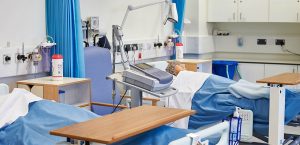
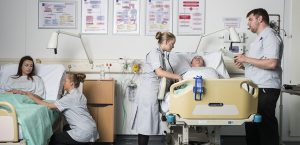
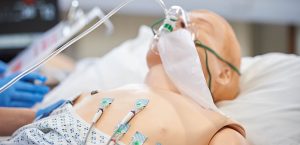
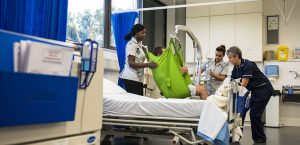
Operating Department Practice facilities
The Cambridge and Chelmsford campuses both offer state of the art purpose built theatres skills laboratories, in which students are able to use sophisticated equipment to simulate many aspects of the perioperative environment.
Students are able to be very hands on, with skills sessions throughout the course, and benefit from working in small groups to practice skills such as airway management, surgical scrubbing, gloving and gowning, preparing a patient for surgery, communicating with patients, applying and interpreting basic and invasive monitoring, setting up equipment and preparation for many emergency situations which may occur in the practice environment. Skills sessions are an exciting part of the ODP Course at Anglia Ruskin University and they are constantly striving to utilise these to their best possible advantage.
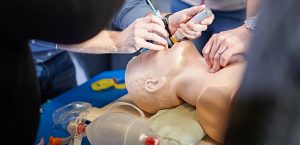
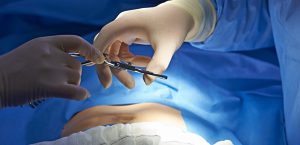
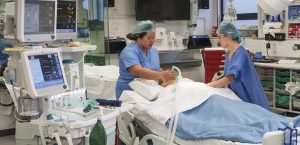
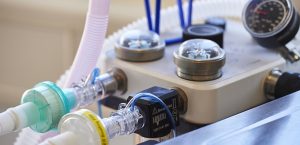
Midwifery facilities
ARU’s Cambridge and Chelmsford campuses all offer purpose built midwifery skills labs, in which our students are able to use sophisticated equipment to simulate many aspects of a working ward.
Skills sessions are designed for our students to be practical and benefit from working in small groups to practice skills such as bed making, hand-washing, communicating with patients, applying and interpreting basic monitoring, blood taking, palpations, observations and emergency care. Skills sessions are an exciting part of the midwifery courses at Anglia Ruskin University.
